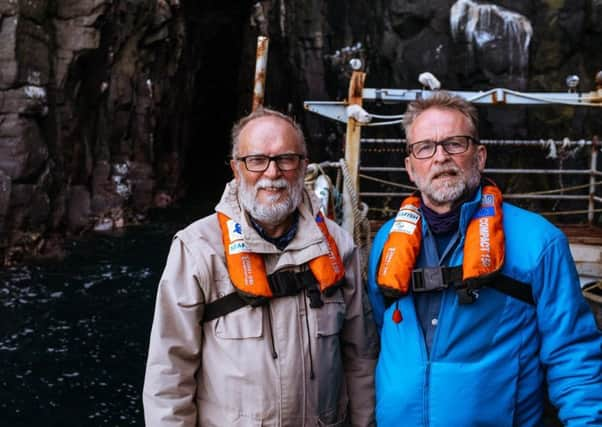Rathlin Island in focus as Ulster goes Underground


In the new three-part BBC Gaeilge series, Cormac Ó hÁdhmaill takes us on an adventure underground as he explores the hidden spaces under our feet.
Beneath the landscape of Ulster lies a network of subterranean spaces; from ancient souterrains, crypts and caves, to abandoned railway tunnels and nuclear bunkers, full of myth, intrigue and stories.
Advertisement
Hide AdAdvertisement
Hide AdIn each episode, Cormac travels across Ulster discovering the varying uses and purposes of underground spaces, and reveals how they have developed through time, from mystical caves in Fermanagh, to strategic WWII forts in Donegal and Belfast’s murky underground sewers.
The series begins on January 22 on BBC Two Northern Ireland at 10pm.
In episode one, Cormac starts his journey by exploring ancient underground locations, including Fermanagh’s Pollnagollum cave, an Iron-Age souterrain near Larne and caves in Co Antrim which were once used as dwellings.
He also visits Dunluce Castle and its underground cave that could accommodate an army and travels by boat to Rathlin Island where he visits ‘Bruce’s Cave’.
Advertisement
Hide AdAdvertisement
Hide AdLegend has it that after losing a battle and being banished from Scotland in 1306, King Robert I of Scotland (popularly known as Robert the Bruce) fled by boat and took shelter in a cave on Rathlin Island, before returning to Scotland to fight to regain his throne.
In the second episode, Cormac investigates how industry has shaped our underground structures as he examines an abandoned hydroelectric dam tunnel; walks the River Farset tunnel underneath Belfast, and discovers the story behind a forgotten railway tunnel near Newry.
In the final episode of the series, he examines how underground structures have long been a source of shelter and refuge in times of warfare and strife, as he reveals the stories behind a desolate coastal fort.
Said Cormac: “I have spent my life out in the open air, in wide open spaces. There is no silence and darkness like that found underground, and the sensory deprivation is extraordinary.”
Ulaidh Faoi Thalamh is made by DoubleBand Films for BBC Gaeilge, with funding from Northern Ireland Screen’s Irish Language Broadcast Fund.